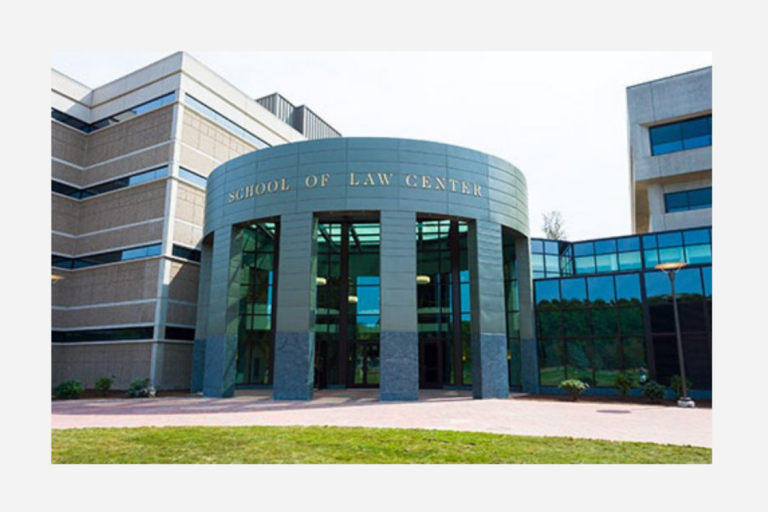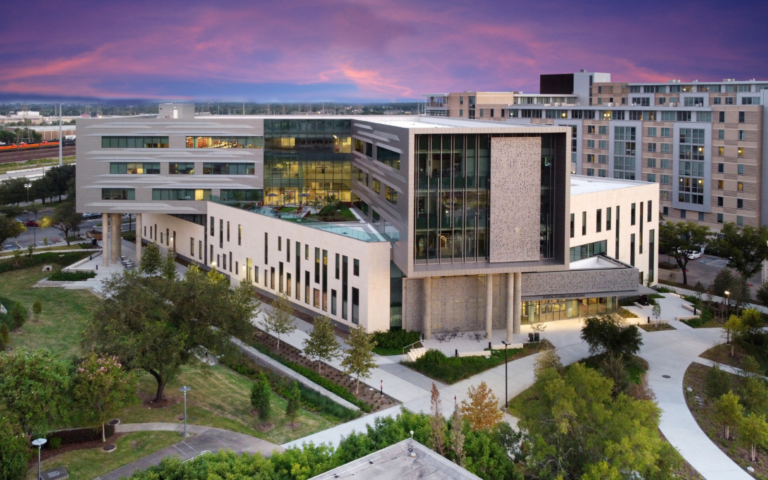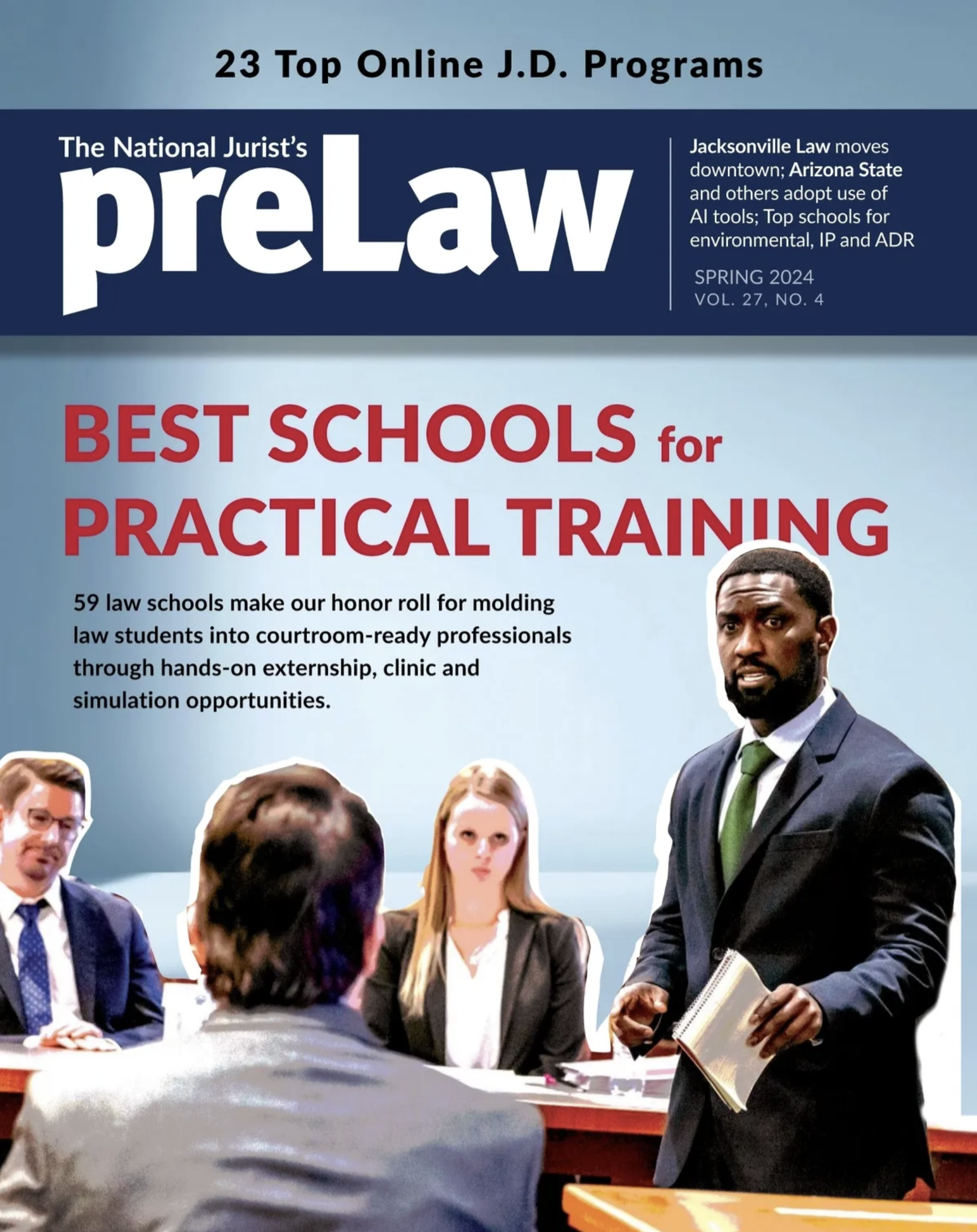The American Bar Association placed Thomas Jefferson School of Law on probation on Nov. 13, six months after it issued the school a warning. The stand-alone law school has until Feb. 28 to bring its standards into compliance.
The ABA’s published decision said “only immediate and substantial action can bring about sufficient change to put the Law School on a realistic path back to operating in full compliance within the time allowed by the Standards and Rules of Procedure.”
Thomas Jefferson School of Law is the third law school to be placed on probation in the past year. Charlotte School of Law was placed on probation one year prior, a move that prompted the U.S. Department of Education to rescind the school’s ability to participate in the Federal Student Loan program one month later. That eventually led to the school’s closure in the summer.
The ABA placed Arizona Summit Law School on probation in March, citing poor admissions practices, academic standards and bar passage. The school had reported a 25 percent pass rate in July 2016
Thomas Jefferson’s probation is also related to poor bar exam performance. Graduates of the San Diego school have struggled on the California Bar Exam the recent years. Just 31 percent of first-time test takers passed the July 2016 exam, 30 percentage points lower than the state average of 62 percent. The school’s pass rate for 2017 has not been announced yet.
The ABA said Thomas Jefferson is in violation of several admissions and academic standards, including Standards 202(a) and (d), which address program resources, Standard 301(a), which addresses the rigor of legal education programming, and Standards 501(a) and (b), which directs law schools to have sound admissions practices and only admit students who appear capable of graduating law school and passing the bar exam.
“While we are disappointed with the Council’s decision, we are addressing the ABA’s concerns,” said Joan Bullock, the law school’s dean. “Thomas Jefferson School of Law will continue its unwavering commitment to providing our students with the knowledge and skills to excel as law students, pass the bar, and succeed in their professional careers. As it has over the past few years, we will continue to steadily improve our financial stability to best serve our students.”
In response to the probation decision, the law school stated in a FAQ document published on its website that it will do more to prepare students for the bar. For instance, faculty will focus more on multiple choice and writing skills in required classes. In addition, the required curriculum will be expanded to ensure that more students take bar-related courses. A mentoring program has also been implemented to help students create individual bar study programs.
As for admissions standards, the law school plans to continue taking a holistic approach to determining which applicants should be admitted. No specifics were provided on the law school’s website as to whether the bottom quartile LSAT score, which was a 141 according to the most recent 509 Report, would be raised.
“The Law School believes all its admitted students have the potential of passing the bar exam and being successful professionals,” the school stated in the FAQ document.
Thomas Jefferson School of Law must submit a written plan to bring the school back into compliance with the standards by February 16, when a fact finder will review it’s admissions data and methodology.
The ABA has never permanently stripped a law school of accreditation. But three law schools have recently closed or announced closure — Charlotte, Whittier Law School and Valparaiso School of Law. All three had low entering LSAT scores and poor bar exam performance.
The ABA placed Whittier Law School on probation in 2005 for poor bar exam performance and it was not taken off probation until 2008. Whittier filed a complaint with the U.S. Department of Education, arguing that the ABA acted without an approved rule. The Secretary of Education eventually found the ABA in violation of federal regulations, and the ABA responded by adopting a new bar passage rule in February 2008, which has strict pass standards.
While Whittier was taken off probation in 2008, the new standard has proven a challenge for many law schools in recent years, including Thomas Jefferson and Whittier itself.
Whittier reported a 38 percent bar exam pass rate in 2017, and announced in the Spring that it will close. The parent university, Whittier College, did not feel the school could make the necessary improvements to meet the ABA’s requirements.
Thomas Jefferson’s challenge may be even greater. As a stand-alone law school is has no parent university to lean back on for financial support, and it will likely face a further shortfall in tuition revenue. In order to increase its median LSAT numbers, it will likely need to reduce enrollment further. Enrollment has already dropped from 1,066 in 2011-12 to 572 in 2016-17. Plus, with the stigma of probation, it can expect recruitment to be even more problematic than before. Even more troublesome, the ABA has already found the school out of compliance with Standard 202 (a) and (d), which state a school must have sufficient financial resources to operate within compliance. It would seem that unless it gets a new source of revenue, it may never meet these standards.
Valparaiso held to a firm standard for entering credentials and it resulted in its entering class dropping from 171 in 2014-15 to 28 this year. That, in turn, forced the university to announce the closure of the school.






